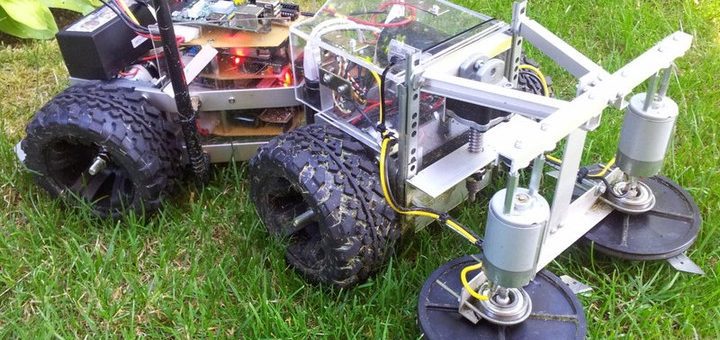Prince Charles Oduk, Founder and CEO PAIC LTD explains to East African business writer Oloo Winnie how a dream nurtured in high school turned into an innovative hub for Africas common solutions
Where would you place the African continent in the evolving tech world?
Africa is a very resourceful continent when it comes to technology. We have very smart and passionate young people who are creating innovative tech solutions that address the challenges this continent faces. The exponential growth in technology is a strong indicator that Africa will soon be independent from outsourcing technology, so we are looking Africa as a technical hub in the coming years.
Kindly, tell us about PAIC and the inspiration behind it?
Prince Automation and Innovation Company (PAIC) is a technology oriented Start-up Company found in 2013 and officially incorporated in Kenya in 2018. We major in solving real life problems by introducing creative inventions and products majorly around internet of things (IOT) for the people. We invest in embracing our own promising ideas by building; nurturing, developing and making them market worthy products and services with intent of delivering value to the African people.
Have you always wanted to be in this space?
My ambition has always revolved around transforming Africa tech space. I studied engineering with a tech leading university in the region spurred by passion for innovations around tech solutions. So in 2013, I start PAIC to address issues around security, food shortage, affordable living and quality health. See, these areas are the core sectors of human life. With the little upkeep money my parents send me, I invested it into my techy ideas. Over time my innovations started gaining attention from institutions and expos among them the annual JKUAT tech expo, Nairobi innovation week, My little big thing innovation challenge among others.
How have the expos catapulted you to maintain this momentum?
After numerous attempts, with these expos, the biggest award I received at the time was from the The Kenya National Innovation Agency (KeNIA) challenge that saw my project win the runners up positions and a cash price of Ksh. 150,000. This was a motivation and huge step towards realising the vision and potential for PAIC and so I went for it with vigour.
Kindly share some of the products that you’ve invented over the last years?
Beba-Beggie: a series of smart connected lockers with advanced tech that addresses security issues by providing storage solutions to end users and customers in busy areas like malls, hotels, clubs, casinos, private offices, gyms and swimming pools, supermarkets, bus stations etc. The lockers are also incorporated with fast charger ports that customers get to utilise for charging their phones and gadgets upon booking the locker.
M-shamba Digital: is a range of smart farming gadgets that allows farmer to monitor the performance of their crops remotely with GSM (Mobile phone messaging) or android web app enabled option with intent to maximise their farm produce. These gadgets have since been used in aquaponics, hydroponics and landless farming systems that we have set up for our customers in different parts of Kenya.
Drone and surveillance systems: We also specialise in building drones locally for both agricultural, and security surveillance purposes to fit our customers’ specific needs.
Smart Homes systems: gadgets for domestic and real estate owners that basically give users the ease of controlling all their electronic appliances via the phone without necessarily using wall switches. This monitors and conserves the electricity power they consume. The users have a dashboard that allows them turn gadgets on and off wirelessly and effortlessly.
Smart water meters: enables tenants pay for water bills or tokens and get the water back up running automatically.
As a young tech savvy entrepreneur, how has the experience been for you?
I think raising this company from nothing to where it is today is something I can gladly cheer myself on. The process has come with its challenges, unexpected ups and downs including lack of funds and resources to build the innovations, little or no exposure to the real potential markets, unresponsive mentors etc nonetheless I did not quit on pursuing my dream. I mean I’m an engineer cum self-taught tech entrepreneur; I definitely had to find ways of manoeuvring past these obstacles to get to my goals with starting PAIC in the first place.
How was it starting out then?
Well I would work from my studying desk with little tools I could afford to buy and jumpstart any of the projects. I couldn’t use the school resources as the rules clearly outlined that any innovation developed by the student using the institution’s resources would mean the school takes up to 60% stake in the company.
Didn’t this scare you, already you were risking a lot and again on an empty stomach?
I would work till late hours in to the night at times at the expense of no sleep at all. My pockets went dry and I had to skip some of my meals. I would either have one meal per day or eat at the university mess to save some money and buy more components for my projects.
What has changed since then?
In December 2018, I got an incubation deal with Africa’s Talking a Pan-African tech company that empowers developers to word class techies. I was taken in as an entrepreneur in residence and later as a studio start-up company founder. The company funded the first POC model for one of the innovations, Beba-Beggie now a product in the market serving Kenyans with over 7 big corporate clients. Six years since PAIC was born, I have an office in Lavington, an equipped workshop in Hurlingham and a display booth in industrial area.
What technological inputs can be put to improve the Kenyan agricultural sector?
Kenya is one of the few countries in the world with the most fertile and arable land spreading through 10% of its acreage. However according to research done by KARI in 2015, farmers still lose up to 50% of their produce, resulting to averagely 2 million people still lacking food on daily basis. The low productivity of the arable land in Kenya in all the regions is majorly caused by poor incentives and underdeveloped supporting infrastructure and institutions. Farmers are basically either misinformed or lack sufficient crucial knowledge on the steps they should take to increase food production.
Supporting technologies that directly engages the farmer to evaluate the performance of their crops as well as increase land productivity should be prioritised to curb food shortage in the region. Innovations around smart farming, accurate soil data analyses and soil performance monitoring systems should be developed. Farmer education should be conducted at personal level as this is the first essential step in optimising the performance of the agricultural sector in Kenya.
What are your thoughts on the current locust invasion?
The current locust invasion (Jan-Feb 2020) could be attributed to from climate change, improper crop rotation practices, environmental issues and so much more.
Does technology have a solution for it?
Yes I think technology could be used to either reduce or contain the situation. For instance drones and robots could be used to scare away the insects or release agrichemicals to the invaded regions.
Compared with other continents, Africa is yet to catch up fully to earnest the available opportunities, what initiatives can the government in place put to ensure such efforts?
Most continents invests in tech initiatives, to ensure research labs, workshops and innovation hubs are constantly running, so exploring new tech solutions has proven not to be a problem to them. I believe African countries are at a good position to grow as fast if governments can unite in supporting and building technologies that benefits their own people. To achieve this, tech solutions within Africa need to be embraced and grown. Measures that regulate, educate and possibly fund aspiring tech entrepreneurs to build Pan-African multimillion businesses should be supported and put in place. Innovators with promising technological solutions should be given a wider exposure to the real world issues they seek to address through expos, exhibitions, summits and conferences where they get to meet potential investors, mentors and likeminded business people already in the tech space.
According to you, how would you describe the tech environment in Kenya?
The tech ecosystem in Kenya is very promising. In the near future we will be hearing more creative tech solutions changing lives of Africans that are Kenyan based; more likes of M-PESA, Africa’s Talking and Decoded Africa just to mention a few.
Your final say
Africa is rising exponentially in building its own tech solutions. We have the potential and resources to build our own independent tech that serves our people. There is always a solution out there waiting to be discovered and deliver unique value. Come on Africa, we got this!





